
The indefinite hunger strike by 17 Jawaharlal Nehru University students has been continuing since April 28, with university teachers and students also showing their solidarity by joining as relay hunger strikers.
Despite the searing heat and failing health of many – including Chintu Kumari, Umar Khalid and Kanhaiya Kumar – the declaration by the Vice Chancellor of JNU that a hunger strike is an “unlawful activity” has only fuelled the strikers’ determination. Although over a hundred teachers met the Vice Chancellor and his team (as he likes to call them) in a bid to break the deadlock, no progress has been made because the JNU administration seems to believe that the fight here is one about the quantum of punishment.
Such is the chasm that separates the current JNU administration’s understanding of what the law is and what justice actually demands that the law has become something of a fugitive in JNU these past few months. The extremely obstinate, vengeful and motivated enquiry proceedings anddisciplinary action over the February 9 event have so perverted university procedures and institutions that the entire JNU administration now faces a crisis of credibility.
Common thread
Like any other institution, it is of course not the case that JNU has always acted fairly. On July 6 2012, the High Court of Delhi, in its judgement on Ms Flora Gupta 2012 vs. Jawaharlal Nehru University & Ors. set aside both the enquiry report of March 7, 2008, and an Office Order dated August 5, 2008, that had declared the JNU campus out of bounds for Ms Gupta and debarred her admission in any programme of the University for the same period.
This setting aside of an enquiry report and of a Vice Chancellor’s disciplinary action against a student was a rare decision by the High Court, as normally, courts order infirmities in procedure to be rectified by the university enquiry committee itself. And if the Court finds that the enquiry has failed to establish the culpability of the individual concerned, it usually orders further investigation to achieve this. In this case, however, the High Court did not adopt either of these two routes, because the university enquiry had so fully failed to establish the case against Ms Flora Gupta (as the 34-page-order painstakingly detailed), that in asking the JNU to do a proper enquiry would amount to punishing her well beyond the debarment for five years imposed upon her. Therefore, out of concern for the plaintiff, the High Court ordered JNU to immediately grant her admission to the PhD programme in Biotechnology.
The enquiry in the Flora Gupta case was on the allegation that the two students, Flora Gupta and Gargi Roy, had obtained prior access to the question paper of the PhD in Biotechnology entrance examination through her supervisor, Prof Uttam Pati, and therefore had topped the entrance examination. In substance, the case bears no resemblance to the controversial High Level Enquiry Committee enquiry and punishments meted out on April 25 to 21 current and former students over the event “Poetry Reading – A Country Without a Post Office’’ on February 9, 2016.
Nevertheless, the two cases are yoked together by a common thread of impunity and utter disregard for established procedures of enquiry, guarantee of principles of natural justice, and a reasonable, proportionate disciplinary action, which transparently and logically follows from the substantiated findings of an enquiry committee. For example, both in the 2008 case involving Flora Gupta as well as in the 2016 case involving the 21 students, those punished were not given any formal explanation (statements or documents, et cetera) about the reason why the Vice Chancellor decided to appoint a special Enquiry Committee. In both cases, the statements of witnesses and the documents relied on by the two enquiry committees were not supplied to those charged, nor was cross-examination allowed, and despite repeated requests, including under the Right to Information law, neither parties were given the full enquiry report.
Most importantly, however, in both cases, the evidence relied upon for charging the students was completely compromised: the current High Level Enquiry Committee has relied on video evidence that has been shown by the Delhi Metropolitan Magistrate’s Inquiry to be “doctored”, and oral testimony shown to be “tutored” (namely in the case of the JNU security guards). In the Flora Gupta case, the “evidence” the One-Man Enquiry Committee relied upon was Gupta’s “confession”, which was dismissed by the Court as having been extracted under duress by the faculty of the School, which incidentally also included Prof Rakesh Bhatnagar, the Chair of the current Enquiry Committee.
In the 2008 case, Prof Rakesh Bhatnagar, along with Prof Aparna Dixit, had been alleged to have dictated the confessional statement to Gupta and another woman student. In fact, Gupta was made to submit four distinct versions of her confessional statement under threats of defamation, until the two faculty members were satisfied with the result. All this happened in the presence of her supervisor, Prof Uttam Pati,who later testified to the fact that Bhatnagar had indeed dictated the confessions. Although Pati himself was left under something of a cloud in the judgement, with the Court failing to understand why no enquiry was ever initiated against him for a leak of the question paper, the choice of Bhatnagar to head the Enquiry Committee now was surprising, to say the least. Appointing someone whose unethical and improper conduct had led to a vitiated enquiry in the past, and a huge embarrassment to the university in the High Court, can not simply be a colossal error of judgement, but would appear instead to be a calculated decision.
An eyewash
Considering the manner in which the proceedings have been conducted, the only conclusion worth making is that the enquiry had already decided to punish a specific set of students and its proceedings were just an eyewash. Why else would an enquiry committee not respond to nearly 60 letters written by at least 20 students? Why would it fail to provide them with a copy of the complaint and the material and testimonial evidence against them so that they could be rebutted? How could students present any evidence in their defence when they did knot know what they were charged with? Rather than these being mere procedural lapses, these are proof of the Enquiry Committee’s – and the JNU administration’s – prejudice against the students it has charged.
As a consequence of this dedication to a predetermined outcome, the charges against many students have swung wildly from the first punitive order of suspension to the show-cause notice to the final order of punishment. For example, Aishwariya Adhikari and Shweta Raj were two of the eight students suspended on February 12, 2016, for what they were informed were any of four misdemeanours: misrepresenting the nature of the event of February 9, forcibly organising it despite withdrawal of permission, creating a law and order situation in JNU, and shouting anti-constitutional slogans and/or making derogatory remarks about the nation.
In the show-cause notice, both were told that they had been found guilty of committing “[a]ny other act which may be considered by the VC or any other competent authority to be an act of violation of discipline and conduct”, and were asked to explain why action should not be taken against them. In other words, it was a show-cause notice that couldn’t be responded to with a substantive defence. In the final order, both Aishwarya and Shweta have been found guilty of “shouting objectionable slogans in wrongfully organised event”. Note the move from “unconstitutional” to “objectionable”, thereby shifting all evaluation to the great Indian terrain of “hurt sentiments”. This, taken together with the fact that Aishwariya is not even mentioned in the Enquiry Committee report (a fact which she pointed out in her reply to the show-cause notice) suggests an overweening will to punish rather than one to fix accountability for an event that went out of hand as a result of a verbal clash between two groups of students
Like Aishwariya, other students’ replies to the show-cause notices have not been taken into account. Even completely plausible explanations such as why a wrong hostel address ended up on the permission form have not been accepted, and in many cases, an entirely new charge has been added. For example, amongst many others, Reyaz ul Haque, whose name was not even mentioned in the Enquiry Committee, has been accused of rousing “caste and communal feelings” for lending his name to a poster announcing the cultural evening as a protest against the “Brahmanical collective conscience” that led to the execution of Afzal Guru and Maqbool Bhatt. (Interestingly, this charge has not been applied to any of the students recorded by the Committee report as shouting slogans like “Duudh mango to khiir denge, Kashmir maango to chiir denge!” – if you ask for milk, we will give you khir or milk pudding but if you ask for Kashmir, we’ll cut you up).
Test of prejudice
Anirban Bhattacharya, Umar Khalid, JNU Students Union Joint Secretary Rama Naga and former JNUSU President Ashutosh Kumar have been penalised for “addressing a gathering consisting of outsiders at Ganga Dhaba”, and somewhat ludicrously, of being part of the procession from Sabarmati Dhaba to Ganga Dhaba during which objectionable slogans were shouted (by 10-15 outsiders).
Charges like these do not even flow from the extremely flawed Committee report, but have been framed post-hoc, in a frantic scrabble around the disciplinary rules to find a misdemeanour to be applied to signing on a poster – or responding to a slogan about Azadi. A similar lack of rationality inflects the severity of the punishments that have been meted out to all the 21 students: exorbitant fines, the failure to pay which shall attract dire consequences, and the completely unwarranted rustication of Umar and Anirban.
Indeed, Anirban is the worst sufferer of them all, as although his punishment will let him submit his PhD in a six-day window in July, he has been declared out of bounds of the JNU campus for five years. This was the identical punishment given to Flora Gupta by JNU, and despite the fact that this extremely harsh penalty did not stand the test of the law, it has been repeated.
In setting aside the punishment in Flora Gupta’s case, the High Court used the “the test of prejudice” as its keystone – that is, whether the person had received a fair hearing, considering all things. If the persons being proceeded against have asked for their rights and been denied, then there is no need for any further proof of prejudice.
For the JNU students union and its teachers association, it is this test of prejudice that the JNU administration and its high level enquiry committee has failed spectacularly. A mere amendment of the quantum of punishment cannot – and should not – be the means by which this gross miscarriage of justice is naturalised as the means by which disciplinary action and justice is delivered on our university campuses.
Ayesha Kidwai is a Professor of Linguistics at JNU.
Article first appeared on: Scroll.in
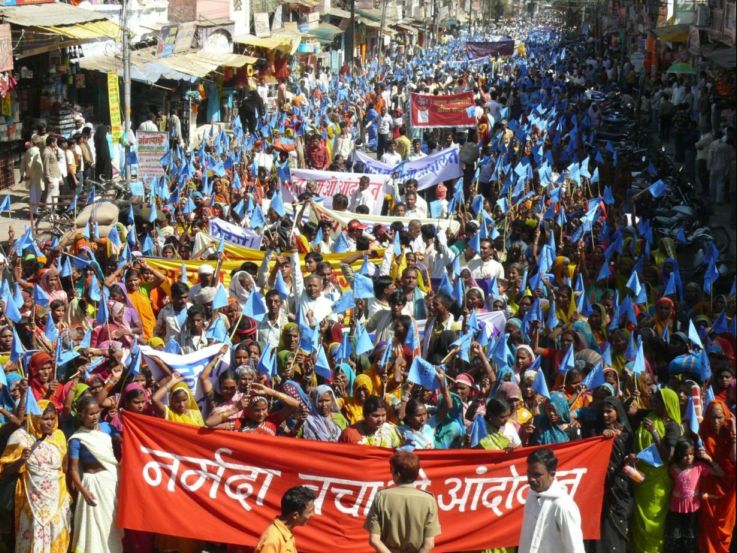

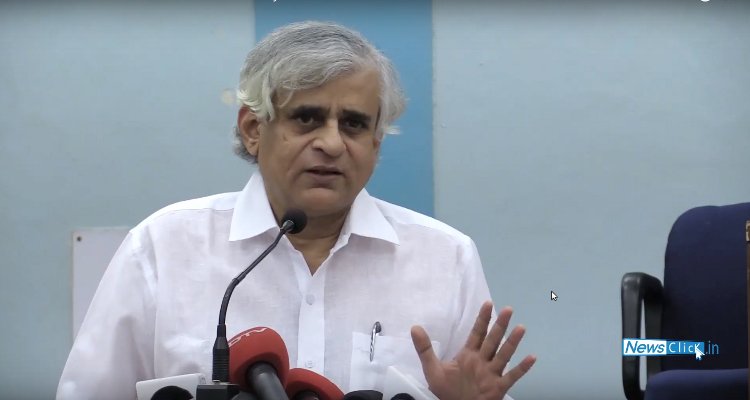

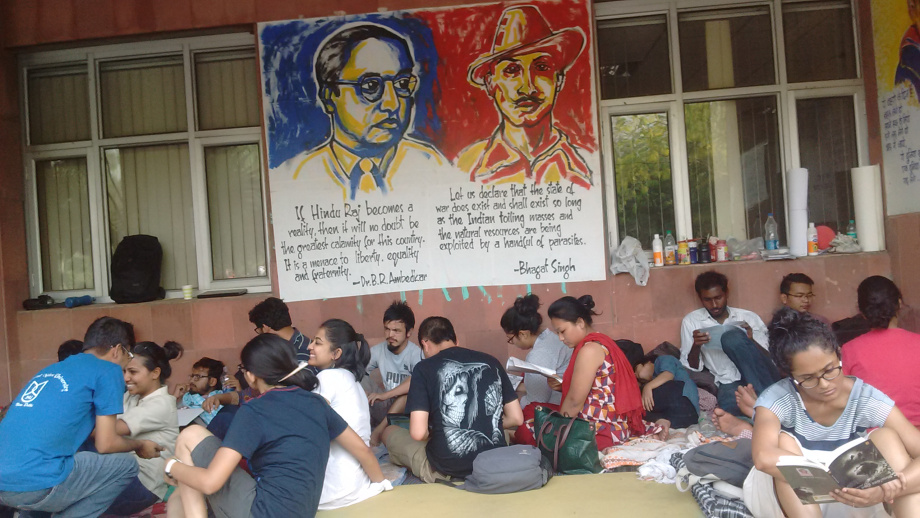
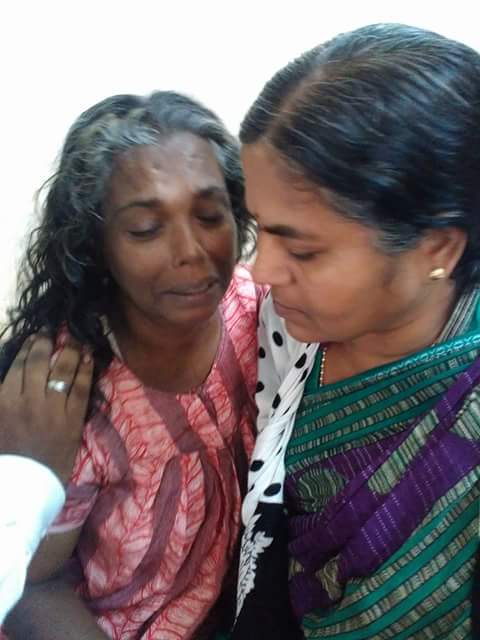
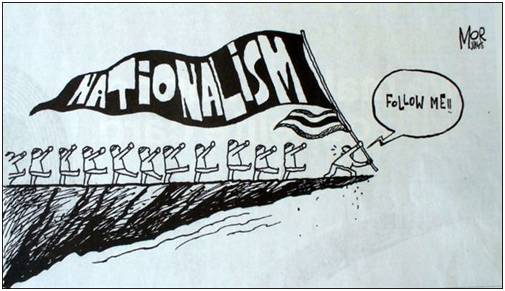
.png)